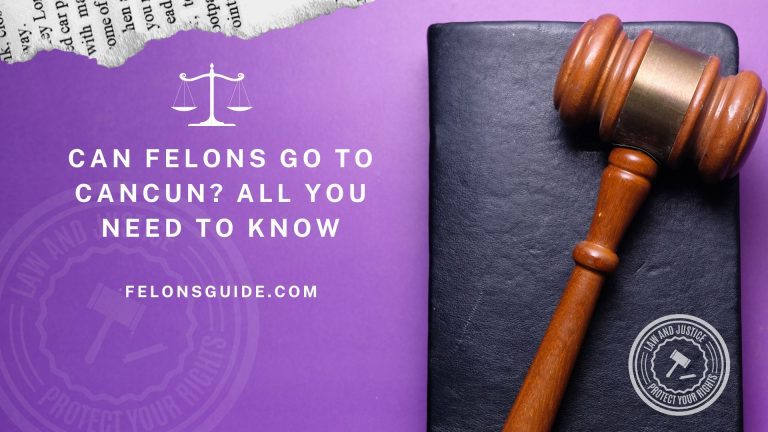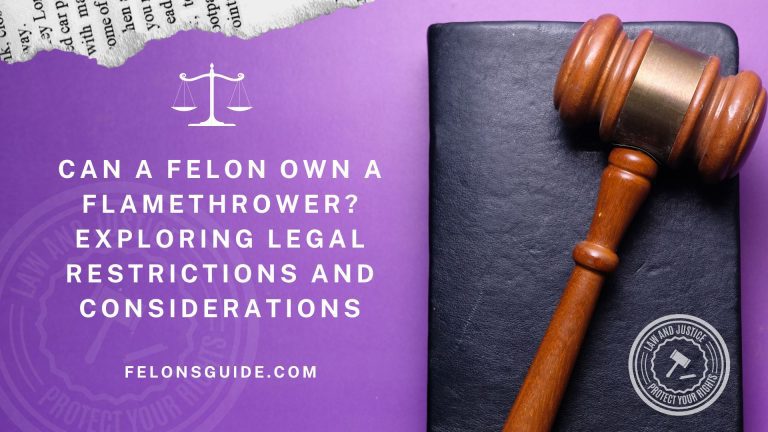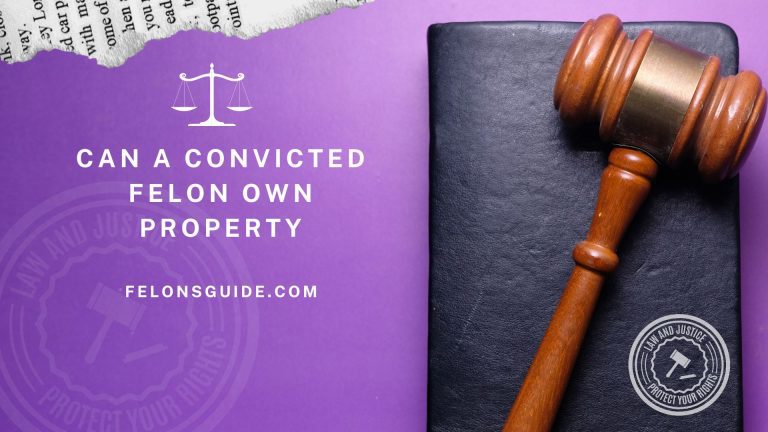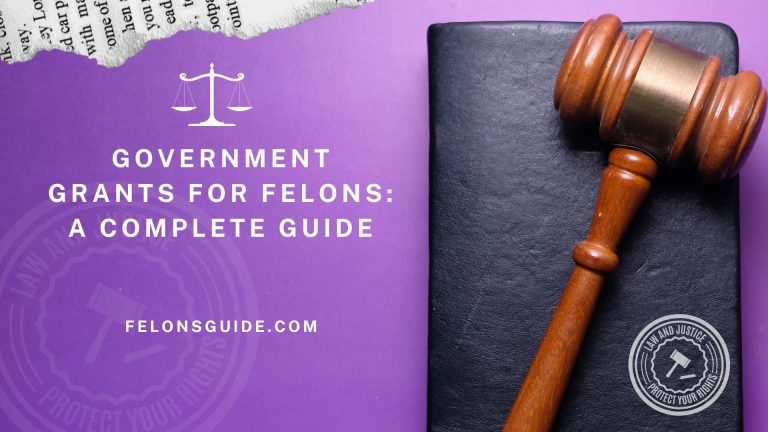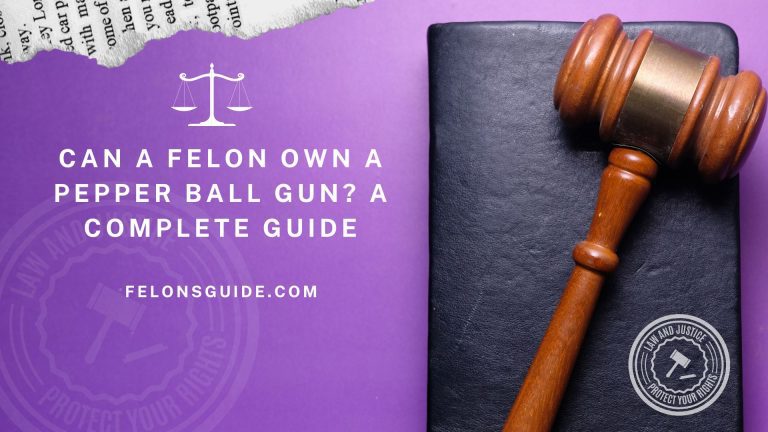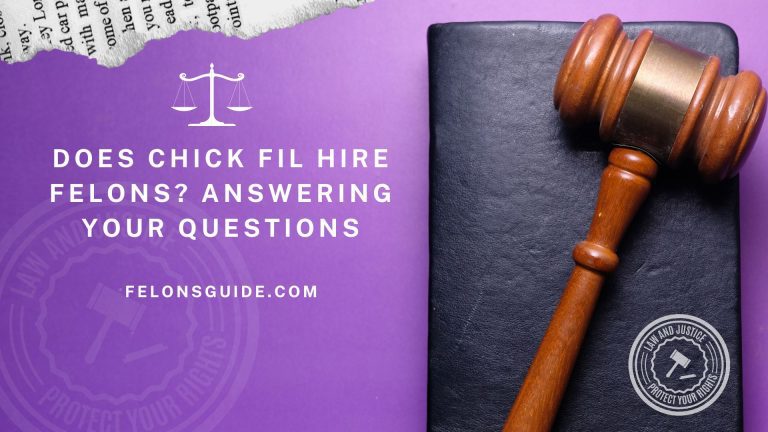What Rights do Felons lose in California?
Being convicted of a felony in California can have severe consequences, beyond just serving time in prison. One of the most significant consequences is the loss of certain civil and political rights that most people take for granted. In this article, we will take a closer look at the specific rights that felons lose in California, and what that means for their future.
What is a felony conviction in California?
A felony conviction in California is a serious criminal offense that carries a potential sentence of imprisonment for more than one year in a state prison. Felonies are classified as more severe than misdemeanors and can result in significant consequences for those who are convicted.
Definition of a felony
A felony is a criminal offense that is considered more serious than a misdemeanor. In California, felonies are defined as crimes that are punishable by imprisonment in a state prison for more than one year. This includes crimes such as murder, rape, robbery, and drug trafficking, among others.
Common types of felonies
There are a variety of crimes that can result in a felony conviction in California. Some of the most common types of felonies include:
- Murder and manslaughter
- Sexual assault
- Drug trafficking and possession with intent to distribute
- Theft and robbery
- White-collar crimes such as embezzlement and fraud
- Assault and battery with a deadly weapon
- Kidnapping
- Burglary
Sentencing guidelines for felonies in California
In California, the sentencing guidelines for felonies can vary depending on the specific offense and the circumstances surrounding the offense. The state uses a determinate sentencing system, which means that there is a predetermined sentence for each crime.
For example, a first-degree murder conviction can result in a sentence of life imprisonment without the possibility of parole. Drug trafficking convictions can result in sentences ranging from three to nine years in prison, depending on the amount and type of drug involved.
In addition to prison time, felony convictions in California can also result in fines, probation, community service, and other penalties.
Overall, felony convictions in California are serious offenses that can have significant consequences for those who are convicted. It is important to understand the types of crimes that can result in a felony conviction, as well as the potential sentencing guidelines for these offenses.
What rights do felons lose in California?
Felons in California lose certain civil and political rights upon conviction, including the right to vote, serve on a jury, possess firearms, hold public office, certain professional licenses, and receive certain government benefits.
Right to vote
Upon conviction of a felony in California, felons lose their right to vote while they are serving their sentence in prison or on parole. However, once they have completed their sentence, including parole, they are eligible to register to vote once again.
Right to serve on a jury
Felons in California are also prohibited from serving on a jury. This restriction applies for the duration of the person’s sentence, including parole.
Right to possess firearms
Felons in California are not allowed to own, possess, or have control over firearms. This restriction applies for the duration of the person’s sentence, including parole.
Right to hold public office
Convicted felons in California are also prohibited from holding public office. This includes elected and appointed positions at the local, state, and federal level.
Right to certain professional licenses
In California, certain professional licenses are restricted or prohibited for felons. For example, a felony conviction can impact a person’s ability to become a licensed attorney, nurse, real estate agent, or contractor.
Right to receive certain government benefits
Felons in California may also be restricted from receiving certain government benefits, including housing assistance and welfare benefits.
Overall, felons in California lose a number of civil and political rights upon conviction. While some of these rights can be restored after completing a sentence, others may be permanently impacted. It is important for felons to be aware of these restrictions and work to address any barriers to their full reentry into society.
Also Read: Can Felons Vote in Illinois? A Comprehensive Guide
The impact of losing civil rights
When felons lose their civil rights, it can have a significant impact on their ability to reintegrate into society. Some of the impacts of losing civil rights include difficulty finding employment and housing, stigma and discrimination, and limited ability to participate in civic life.
Difficulty in finding employment
One of the most significant impacts of losing civil rights for felons is difficulty finding employment. Many employers are reluctant to hire individuals with felony convictions, and in some cases, laws and regulations may prohibit felons from working in certain fields or positions. This can make it challenging for felons to find gainful employment and support themselves and their families.
Difficulty in finding housing
Similarly, felons may also face difficulty finding housing due to their criminal history. Landlords and property managers may be hesitant to rent to individuals with felony convictions, and in some cases, laws and regulations may limit felons’ access to certain types of housing. This can lead to housing instability, homelessness, and other related challenges.
Stigma and discrimination
Felons may also face stigma and discrimination due to their criminal history, which can impact their social relationships, mental health, and overall well-being. This can include negative perceptions and stereotypes, discrimination in social settings, and even harassment or violence.
Limited ability to participate in civic life
Felons may also face limitations on their ability to participate in civic life. This can include restrictions on voting and serving on a jury, which can limit their ability to have a say in their communities and the political process. Additionally, felons may also face limitations on their ability to obtain certain professional licenses or hold public office.
The impact of losing civil rights for felons can be significant and far-reaching. It is important for policymakers, employers, and the general public to recognize these impacts and work towards creating more inclusive and equitable policies and practices for those with criminal histories.
The impact of losing political rights
When felons lose their political rights, it can have a significant impact on their ability to participate in the democratic process and can weaken the principle of equal representation. Additionally, the impact of losing political rights can be disproportionately felt by marginalized communities.
Limited ability to participate in the democratic process
One of the most significant impacts of losing political rights for felons is a limited ability to participate in the democratic process. In California, felons are unable to vote while serving their sentence or while on parole. This means that many individuals with criminal histories are unable to have a say in important political decisions that affect their lives and communities.
Weakening of the principle of equal representation
The loss of political rights for felons can also weaken the principle of equal representation in our democracy. By disenfranchising a large segment of the population, we run the risk of creating a political system that is not truly representative of the people it serves. This can lead to policies and practices that do not adequately address the needs and concerns of marginalized communities.
Disproportionate impact on marginalized communities
The impact of losing political rights can be particularly felt by marginalized communities, who are more likely to have members with criminal histories. This can include communities of color, low-income communities, and other marginalized groups. By disenfranchising these communities, we further marginalize already vulnerable populations and perpetuate systemic inequality.
Overall, the impact of losing political rights for felons can have far-reaching and detrimental effects on our democracy and society. It is important for policymakers and the general public to recognize these impacts and work towards creating more inclusive and equitable policies and practices for those with criminal histories.
Can felons regain their rights in California?
The loss of civil and political rights for felons in California can have a significant impact on their lives and communities. However, there are opportunities for felons to regain some of their rights. This includes automatic restoration of rights after completing their sentence and a process for applying for restoration of rights.
Automatic restoration of rights after completing sentence
In California, certain civil rights are automatically restored to felons after they complete their sentence, including the right to vote, serve on a jury, and hold public office. However, this restoration does not apply to all civil rights, such as the right to possess firearms or certain professional licenses. Additionally, the restoration of political rights may be subject to certain restrictions and waiting periods.
Process for applying for restoration of rights
Felons in California may also apply to have their civil and political rights restored through a process known as a Certificate of Rehabilitation. This process involves filing a petition with the court, demonstrating rehabilitation and a commitment to living a law-abiding life. If granted, the Certificate of Rehabilitation can serve as a recommendation for a pardon from the Governor, which can restore some or all of the felon’s rights.
Factors that may affect restoration of rights
The restoration of civil and political rights is not guaranteed and can be impacted by a variety of factors, including the severity of the crime, the length of time since the conviction, and the individual’s conduct since completing their sentence. In addition, some felonies may be ineligible for restoration of rights, such as certain violent crimes or sexual offenses.
In conclusion, while the loss of civil and political rights for felons in California can have a significant impact on their lives and communities, there are opportunities for them to regain some of their rights. This includes automatic restoration of rights after completing their sentence and a process for applying for restoration of rights. However, restoration is not guaranteed and can be subject to various restrictions and factors.
FAQs:
Q: Can felons vote in California?
A: Felons lose their right to vote while they are serving a prison sentence or are on parole. However, once they have completed their sentence, including parole, their voting rights are automatically restored.
Q: Can felons serve on a jury in California?
A: Felons lose their right to serve on a jury in California.
Q: Can felons possess firearms in California?
A: Felons lose their right to possess firearms in California, even after they have completed their sentence.
Q: Can felons hold public office in California?
A: Felons lose their right to hold public office in California unless their civil rights have been restored.
